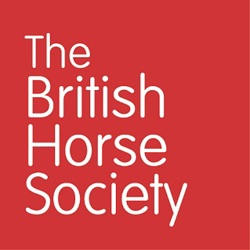Thursday 2 November started out like any other day for three-year-old cob Joseph. His owner, Sarah, keeps Joseph at her home, where he currently lives out with several other horses. Sarah’s groom was making the morning rounds, when she noticed that Joseph didn’t look quite right, standing away from the group and she immediately notified Sarah.
“Joseph had only very subtle and intermittent signs that something was wrong,” Sarah observed. “He was subdued and reluctant to walk but we managed to get him into a stable. Although quieter than normal and feeling hot to the touch, Joseph was eating and showed no signs of wanting to lie down.”

“The first priority was to check Joseph’s temperature, pulse and respiration rates and thank goodness we did,” Sarah told us. “His pulse (heart) rate was up to 62 beats per minute, respiration rate up to nearly 30 breaths per minute and, along with a slightly high temperature, we had no hesitation in calling the vet. By the time she arrived, Joseph had muscle tremors, was starting to sweat and Atypical Myopathy was suspected and later confirmed with blood tests.”
Atypical Myopathy is caused by the ingestion of sycamore seeds and seedlings which have been found, in varying concentrations, to contain a substance called Hypoglycin-A. This substance poses a potentially huge problem for horses, as it can be converted into a toxin within the horse’s body. The toxin has a rapid negative effect on normal cell function in horses, as it deprives the muscle fibres of the energy needed to work. This includes postural, respiratory and cardiac (heart) muscles.
Joseph was given pain relief and put on fluids through a drip before being referred to the nearby equine hospital. It is highly likely that this early diagnosis and the fact that the treatment needed to protect his kidneys began without delay, significantly increased Joseph’s chances of survival.
Back at home, all the horses were removed from the same pasture that Joseph had been grazing on and were closely monitored. All seemed well until the following day, when, in the new paddock, Sarah’s horse Donald was very reluctant to get up. “To say that panic set in was an understatement,” explained Sarah. The vet quickly attended to Donald and blood tests were completed within a couple of hours. Thankfully all was well - it turned out that Donald had just been enjoying a lazy day!
Blood Test Results
Blood tests are an important tool to help vets assess the health status of horses. Below are the blood test results for Joseph and Donald and as you can see, the figures are quite different!
|
Biochemistry: |
Biochemistry: |
|
Joseph – Atypical Myopathy |
Donald - Healthy |
|
|
|
|
|
|
|
|
Results breakdown
Joseph had significantly elevated AST and CK results compared to Donald.
- AST is short for Aspartate Amino-transferase, which is an enzyme found in a range of tissues including muscle. High levels are an indicator of muscle damage.
- CK stands for Creatinine Kinase which is a muscle enzyme. Increased levels will also indicate muscle damage.
- Urea is a natural by-product from the breakdown of protein. Urea is excreted by the kidneys, intestines, and found in saliva and sweat.
- Creatinine is a waste product made by your muscles.
- mmol/L = millimoles per litre
- umol/L = micromol per litre
- U/L = units per litre
These are important indicators and Joseph has since been re-tested to check that normal levels have resumed.
Recovery
Thanks to the early recognition and quick response by Sarah and her groom, Joseph’s chances of recovery were improved. Over the next few days, Joseph’s heart rate decreased to a more stable 46 beats per minute and his blood test parameters remained stable or slightly improved.
We are delighted to report that Joseph was able to return home and enjoy getting muddy again in the new paddock with his field mates.

Joseph back home after making a full recovery.

